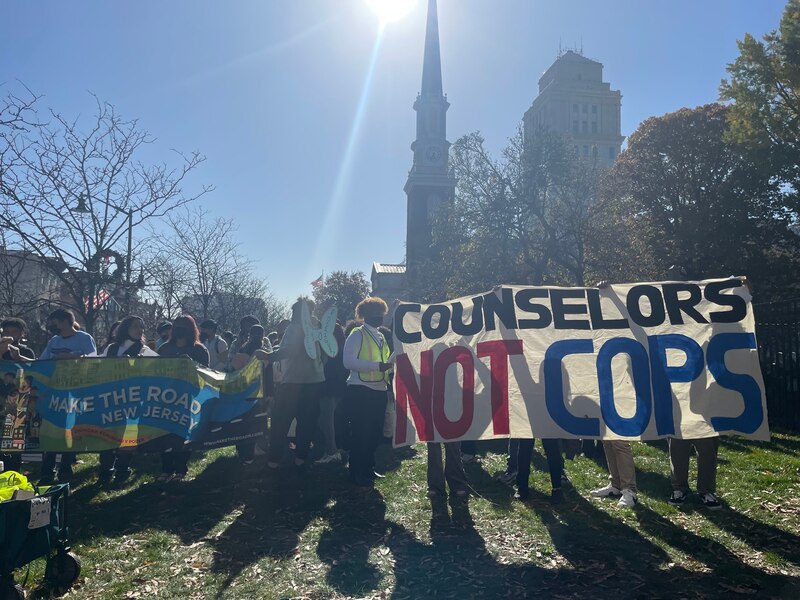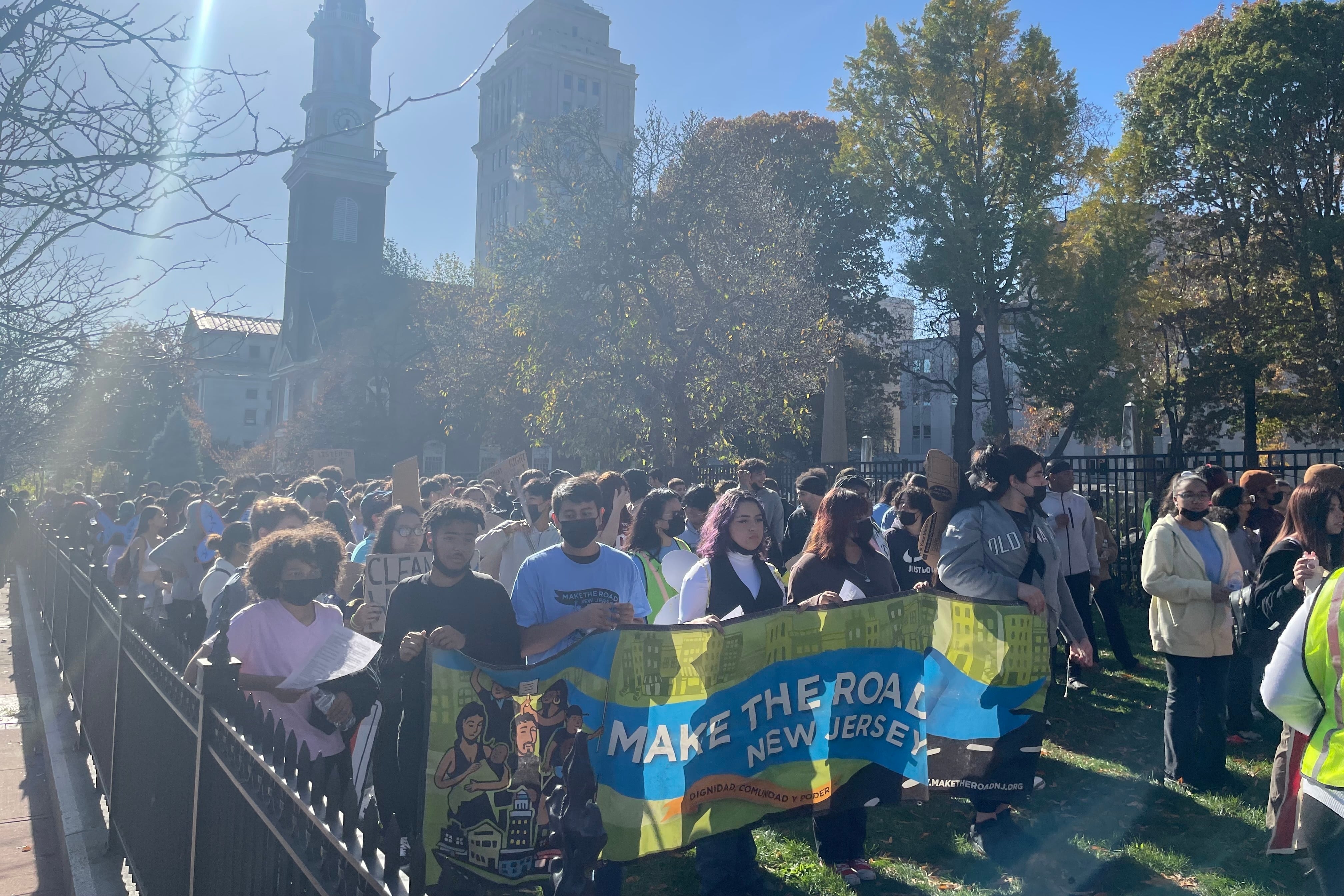Newark and Elizabeth Public School students used their day off on Thursday to demand fewer police and more mental health resources and teachers in schools.
Make the Road New Jersey youth leaders gathered dozens of teens in Elizabeth to call for more resources for students in public schools and greater transparency in school policies.
As they marched down Broad Street in Elizabeth and made their way to Thomas Jefferson Arts Academy to continue their rally, the students chanted: “Police in schools have got to go!”
Breoghan Conchas Marquez, a senior at East Side High School in Newark, said “there are a lot of issues affecting Black and brown students” in cities like Newark and Elizabeth but mental health resources should be at the forefront in these communities.
“There is a discrepancy between the security guard amount and counselor amount,” said Conchas Marquez at the march. “There is not really, like, a good way for all students to get mental health support in Newark or anywhere else for that matter.”
Across the country, federal and state leaders have highlighted the urgent need for mental health support among young people following the pandemic. In July, New Jersey Gov. Phil Murphy introduced his National Governors Association Chair Initiative, which focuses on strengthening youth mental health. The initiative has garnered support from other state governors searching for bipartisan solutions.
In New Jersey, Black and Latinx students have less access to school mental health staff today than they did a decade ago, according to a study from the New Jersey Policy Perspective. In Newark and Elizabeth, where the majority of students identify as Black and Latinx, the inequity is forefront as teens and their families have a higher chance of living in poverty and may have experienced the disproportionate effects of the pandemic.

Students at Thursday’s march said they not only rallied for mental health issues but are also pressing state and local leaders to provide clean drinking water at schools, eliminate uniforms, provide access to clean bathrooms, and have cell phone privileges during the day among other issues affecting public school teens in the area.
Giovana Castaneda is a senior at Rutgers and organized the march alongside her youth team at Make the Road New Jersey. For her, the discrepancies in public schools are the same as when she went to high school four years ago. Currently, her team launched the “Counselors Not Cops” campaign to bring awareness to the amount of police presence in New Jersey in comparison to counselors or other school-based resources.
“We started seeing an increase of law enforcement presence in schools and referrals to law enforcement. The Counselors not Cops campaign started because we saw there was an overpolicing of Black and brown students happening,” Castaneda said.
Currently, her team focuses on community-based actions in Elizabeth but she said “the issues are similar in Newark” when it comes to students of color.
“When I go to their schools, their schools look like prisons. Some don’t have AC, some don’t have quality lunch or quality water,” Castaneda added. “It’s up to community members to create community access programs when it shouldn’t be like that. We should be using city budgets and school budgets to be creating these resources for students, the community shouldn’t be doing it.”
Joe Johnson, policy counsel for the American Civil Liberties Union New Jersey attended Thursday’s march and said state leaders need to do more to help students in cities like Newark and Elizabeth who deal with violence in their communities and the aftermath of the pandemic.
“Students have issues they are dealing with and they want to be able to speak to a professional about them whether it’s something happening in schools, in the community or at home,” Johnson said. “Most students don’t have access to a mental health professional.”
Additionally, state leaders should stay away from “quick” solutions or increased policing after events like the Uvalde, Texas school shooting or violence in the community, Johnson added. The goal is “listen to what students want,” he said.
“What we really see is that whenever something happens there’s a very quick visceral reaction: ‘We need to have more police, more cameras, more metal detectors,’” Johnson said. “What ends up happening is that most of these things go into Black and brown school districts, pretty much without fail.”
Jessie Gomez is a reporter for Chalkbeat Newark, covering public education in the city. Contact Jessie at jgomez@chalkbeat.org.





